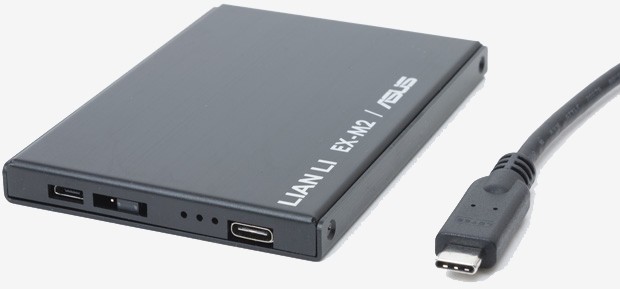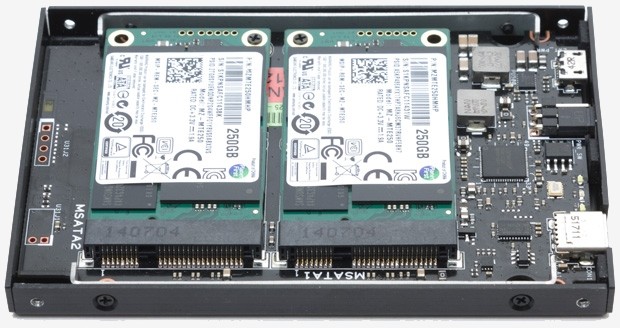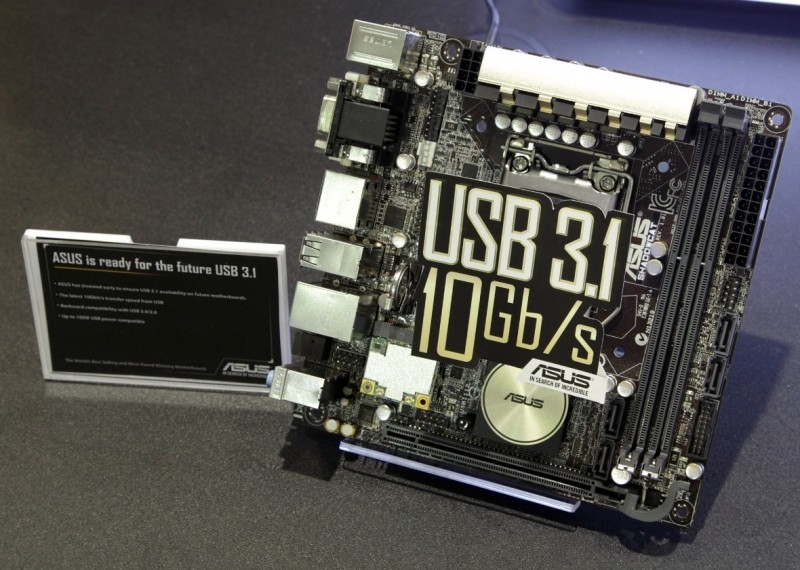The specifications for USB 3.1 were finalized nearly a year and a half ago. Commonly referred to as SuperSpeed Plus, it promises even faster transfer rates than USB 3.0 solutions and with hardware now trickling down to end-users, we're finally getting to see what it can do in the real world.
On paper, USB 3.1 offers double the signaling speed at 10Gbps. It also modifies the line encoding scheme from 8b/10b to 128n/132b. What this means is that only four bits out of every 132 are set aside for encoding overhead versus two out of every 10. All things considered, USB 3.1 has a maximum theoretical effective transfer rate of between 500MB/sec to 1.21GB/sec.

Using a prototype USB 3.1 enclosure loaded with two Samsung 840 EVO SSDs in RAID 0 and an Asus Z97-A/USB 3.1 (Asus also supplied the enclosure and drives), The Tech Report set out to see just what sort of numbers they could squeeze out of the setup.
Using CrystalDiskMark to measure sequential read and write speed as well as 4K random reads / writes, the publication recorded sequential read speeds of 781.2MB/sec and writes of 797.8MB/sec. In the same test, USB 3.0 scored just 446.5MB/sec and 448.6MB/sec, respectively.

4K random reads checked in at 35.8MB/sec with writes scoring 79.6MB/sec, compared to USB 3.0 read / write speeds of 26.2MB/sec and 27.3MB/sec.
As you can see, there's plenty of speed to be had with USB 3.1. Motherboards supporting the spec, like the one used in TTR's testing, are already available for purchase. Finding an enclosure to support SuperSpeed Plus, however, may take a bit as I was unable to locate any for sale as of writing. I suspect it won't be long before they start cropping up at your favorite online retailer.
